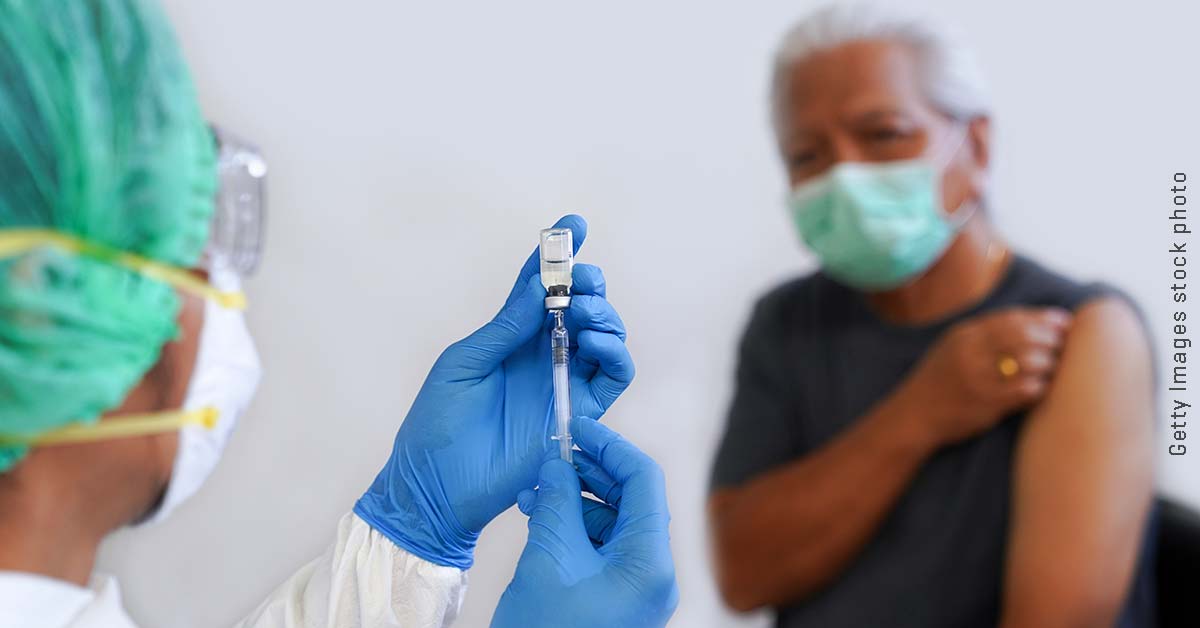I cannot explain it and it doesn't make any sense. I am of an age where the words "vaccine" and "vaccinated" actually meant what they said.
During the covid pandemic the definition of vaccinated changed where, before, it meant if you had a vaccine against a named disease, you were immune from said disease. This changed to "you might not get as poorly as others".
Now call me a tin foil hatter but this change to the definition came at the same time as people who had taken the C19 vaccines were being reinfected time and again. So if the C19 vaccine wasn't making people immune from the disease, just change the definition of the word vaccine and waffle on about variants.
We were promised the C19 vaccine would stop us getting covid and ensure that we wouldn't infect anyone else but that turned out to be wrong. It didn't stop infection or transmission. I really believe we have been lied to about much.
No vaccine gives perfect immunity, and by the very nature of the immune system you do get "infected" by the disease a vaccine protects against, as the vaccines work by preparing the body to respond to it and react faster and with more force when it is detected. Basically you start to get infected but the body is ready and starts fighting it off, hopefully before you show symptoms and become highly infectious* (you might feel a bit run down but never know why), as the infection doesn't get the foothold it needs to spread but for something in the respiratory track even "mild" means you're likely shedding the live virus.
Unfortunately Covid changes fast enough (rather like the flu which requires a yearly shot against usually 3-4 new strains) which makes the jabs job harder as the immune system takes a little longer to respond than if it was a perfect match, but it still reacts and does so in a manner that means what would likely have been a nasty infection is now "mild" and short or not noticable. It's not a perfect vaccine, but it's pretty much on a par with most others in how it's working.
I think something covid has shown is that a lot of people don't understand that diseases mutate and that for a vaccine to work best you really need to be vaccinated against specific variants, unfortunately that message is a little harder than "vaccinate to get protected" or a pithy 3 word slogan.
I've certainly seen a lot of people who've never paid attention to childhood jabs as they don't realise that a course of 2 or more jabs is the norm for "stable" diseases we protect against, and for ones that mutate a lot at minimum a yearly updated jab is needed. As i've said before, even for extremely stable diseases if you're expected to get exposed a lot or suspected to have been exposed you'll either get a routine booster jab, or get one if you see a doctor after the likely exposure (tetanus for example IIRC hasn't changed in centuries, but you'll still get a booster if you have a nasty cut and they don't know if you've had one in the last few years),
Nor do a lot of people seem to have paid attention to the history of vaccines to understand that the covid jab for a "first" vaccine for a completely new disease was both developed fast, and has worked excellently, iirc from the first covid jab we were seeing success rates in terms of protection that were rarely if ever seen in previous "early" vaccines and on a par with some of the very well established ones.
I honestly think covid is probably the first time a lot of people have had to have a vaccine, or thought about it at all since the MMR nonsense, and unfortunate a lot of the MMR grifters latched onto it for the same reason (they can sell "wellness" products and things like crystals to protect against the signals).
*One of the key reasons "herd immunity" relies on a very high percentage of the population having been vaccinated is that for some illnesses some people just never get fully protected from the vaccine and others can't take it, whilst even those that are protected can still carry it to some degree.






